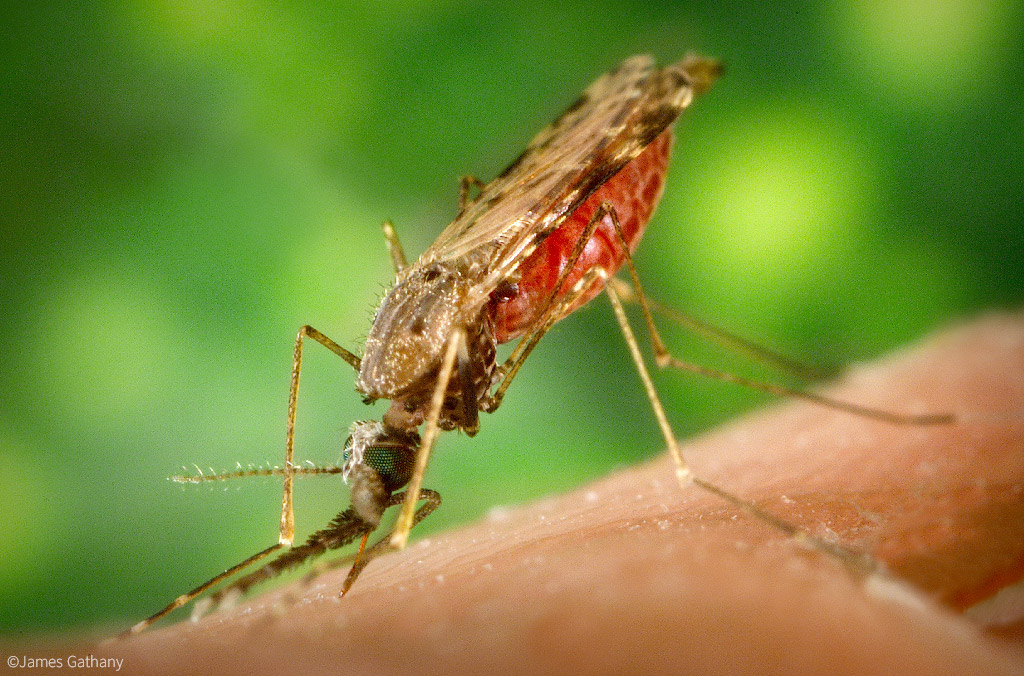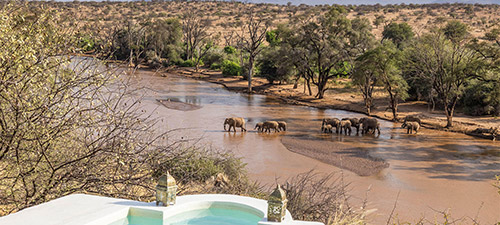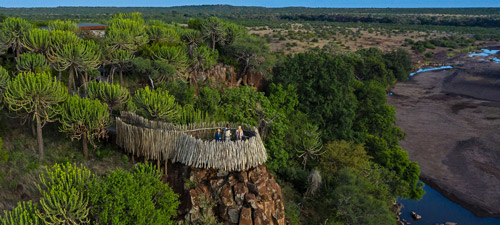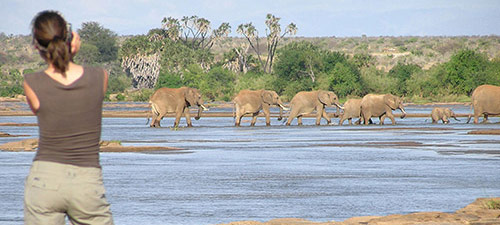
Malaria is a parasitic disease that attacks red blood cells and is usually spread by the female Anopheles mosquito. Although the implications of being infected with malaria can be severe, the likelihood of tourists in Africa being infected is extremely low if good advice from travel experts is followed, and simple precautions are taken.
Introduction
Malaria is a mosquito-transmitted infectious disease caused by parasites belonging to the Plasmodium genus. The female Anopheles mosquito transmits these single-celled organisms into the human bloodstream where they begin their full life and reproductive cycle, first in the liver and later in the red blood cells. ‘Uncomplicated’ malaria symptoms include high fever, headaches, body aches, nausea and diarrhoea (though not always), and a feeling of extreme fatigue, but ‘severe’ or ‘complicated’ cases can result in coma, seizures and death.
P. falciparum, P. vivax, P. ovale and P. malariae are the most common species of Plasmodium mosquitos that cause malaria in humans, and medical professionals must confirm which species has been responsible for the infection. Typically, P. falciparum and P. vivax are considered to be more dangerous, but all malarial infections should be treated as a medical emergency. While many people consider cerebral malaria to be a different type of malaria, it is typically caused by a severe infection of P. falciparum that has gone untreated for an extended period.
Which African countries are high risk?
Malaria is present in the majority of African countries, but its geographic distribution is complicated by several different factors, meaning that malaria-free and malaria-risk areas can occur in close proximity and risk levels can be seasonal. The highest risk areas tend to be around the equator, as warm and humid temperatures in high rainfall areas favour transmission. As per the CDC, malaria transmission does not occur at very high altitudes, in deserts away from oases and in areas where eradication programs have successfully eliminated the risk. In temperatures below 20˚C, the parasite cannot complete the necessary growth cycle in the mosquito before transmission.
Every year, the Malaria Atlas Project works in conjunction with the World Health Organization to produce the World Malaria Report with the necessary, updated information about the distribution of malaria and where outbreaks could be anticipated. An up-to-date and interactive map can be found here.
Avoid being bitten
It’s impossible to avoid every single mosquito bite, no matter how diligent you are, but there are a few tips to avoid being bitten wherever possible:
- travel during low-risk seasons – the dry and cool months;
- use insect repellent;
- cover legs and arms with long-sleeved shirts and trousers, particularly at night;
- sleep under a mosquito net in an air-conditioned or well-screened room and, if possible, sleep with a fan on;
- avoid standing water that may breed mosquitoes.
Preventative Prophylactics
Due to the complexity of the malarial plasmid life cycle, there is no widely available or effective vaccine available against malaria, though there are vaccines at differing stages of clinical development and trial.
There are several prophylaxis medications available, and many different factors should be considered in choosing an appropriate one. Most important is to follow the advice of a doctor, who should be up to date on personal medical history, as well as which medications are more effective for different strains of malaria. All of these medications are to be commenced before the date of travel to a malaria area and continued after the traveller has returned.

Some of the more common options include:
- Atovaquone-profuanil (Malarone) – must be taken daily at the same time of day;
- Doxycycline – taken daily at the same time of day;
- Mefloquine – taken once a week on the same day of the week;
- Chloroquine phosphate or hydroxychloroquine sulfate (Plaquenil) – taken once a week on the same day of the week but effective only in certain areas.
As with any medications, these medications all have their potential side effects that should always be discussed with a doctor beforehand, including nausea, insomnia and photosensitivity (when taking doxycycline). Most side effects are infrequent and generally do not necessitate discontinuing the drug.
Pregnant women and parents of young children need to be particularly cautious if travelling to a malaria area and it essential to combine both the prophylaxis (some options are safe in both pregnancy and for infants) with active preventative measures.
Treatment
With malaria, early detection is critical. The disease typically presents with symptoms between one to three weeks after exposure, but in extremely rare cases, prophylaxis drugs have delayed symptoms for a few months. It is essential for anyone who has travelled to a malaria area to seek medical advice immediately if they display any malaria symptoms and fully explain their travel history. While home tests are available, it is essential to note that due to the complexity of the malaria life cycle, these tests can yield false-negative results. Even if a home test shows a positive result, it is still necessary to seek medical attention so that the species of malaria and seriousness of infection can be confirmed via a blood test-particularly since certain strains of drug-resistant malaria require specific treatment. It is also critical to complete the course of medication prescribed to avoid the risk of reinfection, regardless of whether or not symptoms are still present.
Also read: Understanding yellow fever
To comment on this story: Login (or sign up) to our app here - it's a troll-free safe place 🙂.![]()








